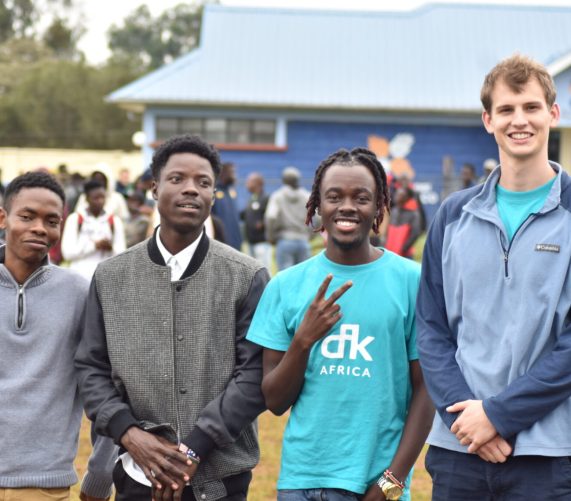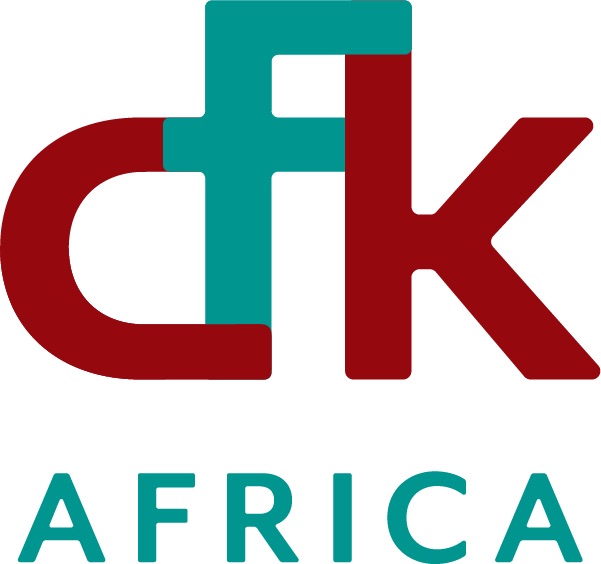

UNC Chapel Hill Students
are global leaders.
The CFK Africa Peacock Fellowship offers UNC students the opportunity to apply their skills and talents to engage in participatory research and development in Kenya.
The fellowship is an immersive, global summer experience at our office in Nairobi, Kenya. Fellows work directly with Kenyan staff to strengthen our programs, contribute relevant skills and expertise, implement new strategies, and provide mutual benefit to the organization and fellow.
The fellowship
Fellows will travel to Nairobi, Kenya and spend at least eight weeks in the summer implementing their project or carrying out their work. Pre-departure, students will develop a project plan with CFK Africa staff in the US and Kenya and participate in a pre-departure orientation. Upon return, fellows complete final reports and engage in campus outreach activities to help raise awareness of CFK Africa’s impact. The fellowship provides a stipend of $6,000 for graduate-level students and $4,000 for undergraduate-level students to support the costs of international airfare, in-country transport and expenses, and housing.
Eligibility
This fellowship is for UNC undergraduate, graduate, or Ph.D. students who can help develop sustainable projects, contribute relevant skills and expertise, or conduct equitable research in collaboration with CFK staff. Students must be returning to UNC the following semester after their summer engagement (i.e., graduating students who matriculate in the Spring of 2025 are not eligible).
Focus Areas
Youth Leadership & Education Focus: Youth Leadership and Education Fellows will support local leadership, sports for development, strengthen economic resilience, girls’ empowerment, and/or improve school quality and educational outcomes for students living in informal settlements. Projects can be explored based on the needs of the organization and the interests of the fellow.
Global Public Health Focus: Fellows will support our work in primary health care, adolescent and youth health, nutrition, WASH, and/or maternal and child health. Projects can be explored based on the needs of the organization and the interests of the fellow.
Create Your Own Project: We also welcome Masters and Ph.D. applicants that wish to bring their unique skills and interests to CFK Africa to conduct mutually beneficial research or implement short-term projects in Kenyan informal settlements that relate to our focus areas of female empowerment, sexual and gender-based violence, nutrition, health, education, economic empowerment or livelihoods training, WASH, or maternal and child health.
Fellowships available: 2
Application & Selection Process and Timeline
-
- Application Opens: September 3, 2024
- Application Deadline: 11:59 EST PM on November 22, 2024 – APPLICATION CLOSED
- Applications are reviewed by past fellows, UNC faculty, CFK staff, and board members.
- Candidates selected for interviews will be notified by December 13, 2024.
- Finalists will attend a one-hour interview at our US office in Chapel Hill in January 2025.
-
- Selected Fellows will attend a brief interview with our Kenyan staff via Zoom in late January / early February 2025.
- Fellows will be notified of their award by February 14, 2025.
Deadline to Submit
All application materials should be uploaded to our application portal no later than 11:59 PM ET Friday, November 22, 2024.
Online Application Form & Materials Required for Submission
NOTE: The application for the 2025 Peacock Fellowship Application will be live on September 3, 2024.
Online application form and materials required for consideration:
-
- Complete the online application form – APPLICATION CLOSED.
- Upload your CV/Resume and cover letter (optional) explaining why you are applying for the fellowship with CFK Africa, your future goals, and your area(s) of interest in PDF format.
- Upload one professional or academic reference letter in PDF format.
Please note that our application form does not save your work. We strongly suggest saving your work on a separate document until you are ready to submit your application. For your convenience, you can view a PDF version of the application questions here.
Review Criteria/Evaluation of Applicants
CFK Africa staff from the US and Kenya, as well as past Peacock Fellows, UNC Faculty, and board members, will select fellows. Review criteria include applicant interest areas, past experiences, and future goals, with preference given to those with a demonstrated interest in global health, education, working in informal settlements, East Africa, or one of our other focus areas.
All applicants must possess the ability to work independently, efficiently, and reliably with demonstrated research and cross-cultural communication skills. Although the fellow will further develop their intercultural competency, they must exhibit a high level of cultural sensitivity and self-awareness to work well with others.
Award Requirements
-
- Consistent updates to US staff.
- A written blog surrounding the student project activities, lessons, and reflections, one mid-fellowship and one final to be published on CFK’s website.
- Attend campus outreach events (seminars, lunch series, info sessions, etc.) about your fellowship experience with CFK Africa.
- Participation in CFK Africa Alumni Network activities.
- Support CFK Africa fundraising efforts on campus and digitally.
Reflections From Past Fellows
About CFK Africa
Headquartered in Kibera, located in Nairobi, Kenya, CFK Africa combines public service with responsible research to transform health, education, and economic outcomes in informal and peri-urban settlements. Co-founded by a UNC student in 2001, CFK Africa is a UNC-affiliate organization, a registered 501(c)3 nonprofit in the U.S., and a non-governmental organization (NGO) in Kenya.
Questions
Email wyatt.foster@cfkafrica.org.
Peacock Fellowship Alumni
UNC Peacock Fellows report that their CFK Africa engagement significantly shaped their career paths, with many serving in impactful roles in public health, clinical health services, government, education, journalism, and philanthropy.
Join our network of globally-minded alumni who remain committed to service.
Peter Dixon, 2004
Kelly Have, 2005
Jennifer Ingle, 2005
Aaron Charlop-Powers,2005-2007
Matthew Smith, 2005
Laura Louison, 2006
Amy Maria Nkonge, 2006
Laura Williamson, 2007
Neha Singh, 2007
Alisa Eanes, 2008
Yaniv Barzalai, 2008
Blair Payne, 2008
Alex Loizias, 2009
Taylor Jo Isenberg, 2009
Brendan O’Boyle, 2010
Kevin Diao, 2011
Lindsey Moore, 2011
Kathleen Ellison, 2012
Molly Smith, 2012
Caitlin Kleiboer, 2013
Kai Schwartz, 2013
Brandon Wong, 2014
Courtney Schnefk, 2015
Micaela Arneson, 2016
Jeff Walker, 2017
Carolyn Lamere, 2017
Brooke Bauman, 2017-2018
Ashley Coleman, 2018
Anna DeGrauw, 2018
Rasheca Logendran, 2019
Joselyn Dangler, 2019
Chelsea Leversedge, 2020
Valerie Lucas, 2020
Keerti Kalluru, 2021
Emily Seiger, 2022
Greear Webb, 2022
Mitch Kimber, 2022
Sarah Lebu, 2022
Selah Piper, 2022
Stephanie Momanyi, 2023
Benjamin Bramson, 2024
Mary Feser, 2024
